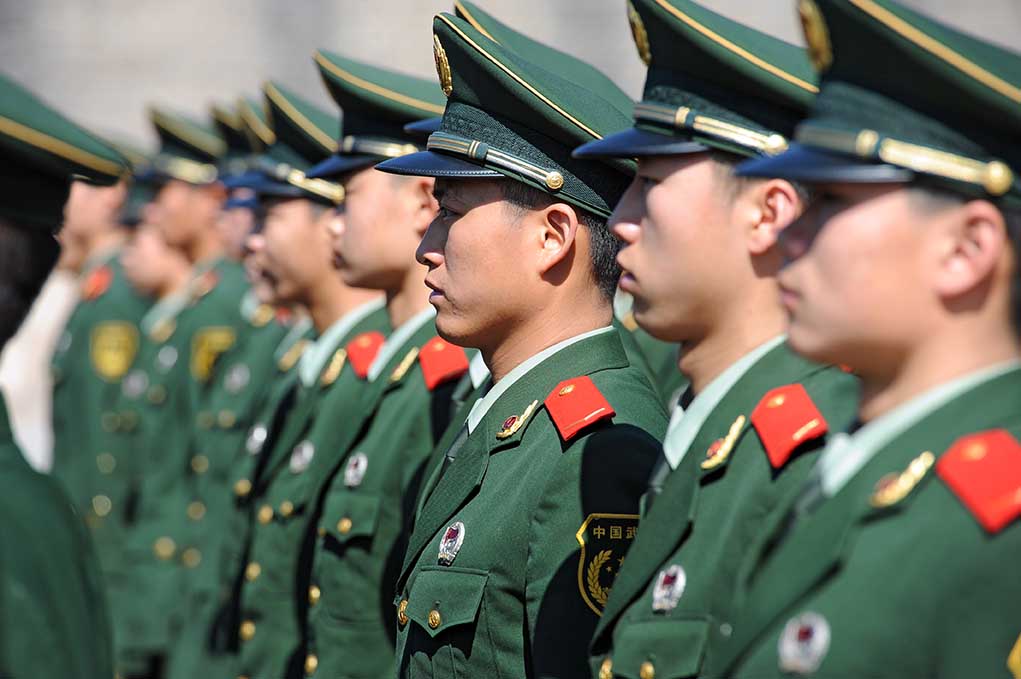
China flexes its military muscle in the South China Sea as the Philippines courts foreign allies, threatening a dangerous escalation in a region vital to global trade.
Key Takeaways
- China’s PLA Southern Theatre Command conducted major sea and air patrols in the South China Sea in direct response to joint drills between the Philippines and Japan
- Chinese military officials have condemned the Philippines for “courting countries outside the region” for joint patrols, claiming these actions undermine regional security
- The Philippines has strengthened military cooperation with both Japan and the United States, significantly raising tensions in the contested waters
- The South China Sea remains a critical global shipping route worth over $3 trillion in annual trade, with competing territorial claims unresolved
- China continues to reject a 2016 international tribunal ruling that invalidated its expansive maritime claims in the region
China’s Military Response to “Foreign Interference”
The Chinese military launched comprehensive sea and air patrols across the South China Sea on Saturday, deliberately timed to coincide with joint maritime exercises between the Philippines and Japan. The People’s Liberation Army Southern Theatre Command orchestrated these shows of force specifically to counter what China perceives as growing foreign intervention in its claimed territorial waters. This marks a significant escalation in China’s military posture as neighboring countries increasingly collaborate with global powers to challenge Beijing’s expansive maritime claims that encompass nearly the entire South China Sea.
“The Chinese military conducted patrols in the South China Sea on Saturday while a Philippine-Japan joint drill was under way,” said Senior Colonel Tian Junli.
Senior Colonel Tian Junli, spokesman for China’s Southern Theatre Command, issued stern warnings about these joint exercises, characterizing them as deliberate provocations that threaten regional stability. The Philippine-Japanese exercises represented the second joint drill between these nations since August, indicating a strengthening military relationship that directly challenges Chinese dominance. Beijing has repeatedly expressed concern that the Philippines is actively recruiting nations from outside the region to participate in naval patrols, creating what China describes as unnecessary security risks in waters it considers under its sovereignty.
Philippines Builds Coalition of Maritime Allies
The Philippines has dramatically increased its military cooperation with multiple nations in recent months, pursuing a clear strategy of internationalizing its territorial disputes with China. Beyond the recent exercises with Japan, the Philippine military has conducted joint maritime drills with the United States in the contested waters, effectively creating a multi-national challenge to China’s territorial ambitions. When contacted about these developments, the Philippine embassy in Beijing maintained a strategic silence, declining to comment on China’s military response or its own expanding network of maritime partnerships.
“The Philippines has been courting countries outside the region to conduct so-called joint patrols, raising security risks in the South China Sea and undermining regional peace and stability,” said Senior Colonel Tian Junli.
This strategic pivot by the Philippines represents a direct challenge to China’s territorial claims and has successfully drawn international attention to Beijing’s aggressive actions in the region. By forming military partnerships with both the United States and Japan, the Philippines has effectively created a counterbalance to China’s overwhelming military advantage in the disputed waters. Chinese officials have interpreted these moves as deliberate provocations designed to internationalize what Beijing considers domestic territorial matters that should be resolved through bilateral negotiations where China holds significant leverage.
High Stakes in a Critical Global Shipping Lane
The growing militarization of the South China Sea carries profound implications for global commerce, as this contentious body of water serves as the transit route for more than $3 trillion in annual ship-borne trade. China’s expansive claims encompass nearly the entire South China Sea, directly conflicting with competing claims from multiple Southeast Asian nations including the Philippines, Vietnam, Malaysia, and Brunei. Despite a landmark 2016 ruling by the Permanent Court of Arbitration in The Hague that thoroughly rejected China’s claims, Beijing continues to dismiss the decision and has instead accelerated its military presence in the region.
“The theater command forces remain on high alert, resolutely safeguarding China’s national sovereignty and maritime rights,” said Tian Junli.
Chinese military officials have made it abundantly clear that they will maintain a state of high readiness in the South China Sea, with Tian insisting that any military activities that might “stir up trouble” are fully under control. This defiant stance, combined with increasingly frequent military exercises, signals China’s determination to assert dominance over waters critical to its strategic and economic interests. As President Trump has frequently pointed out, China’s territorial expansionism represents a direct challenge to the established rules-based international order and American interests in maintaining freedom of navigation in vital global shipping lanes.











